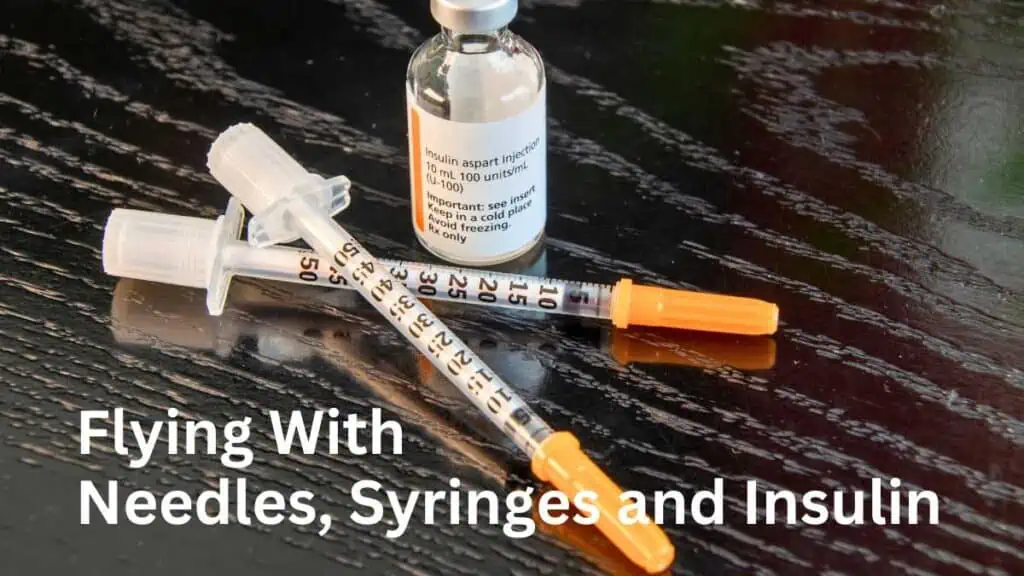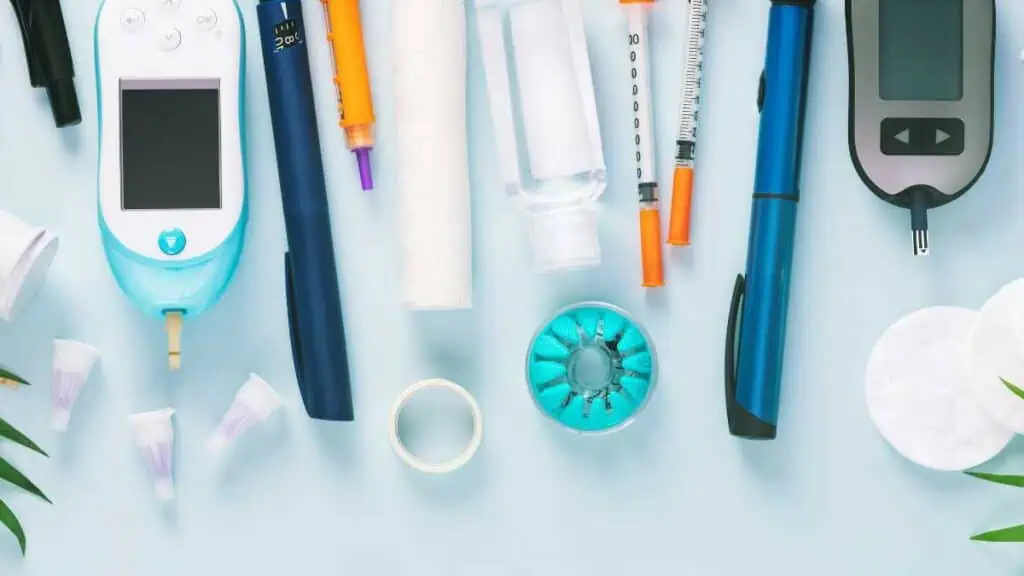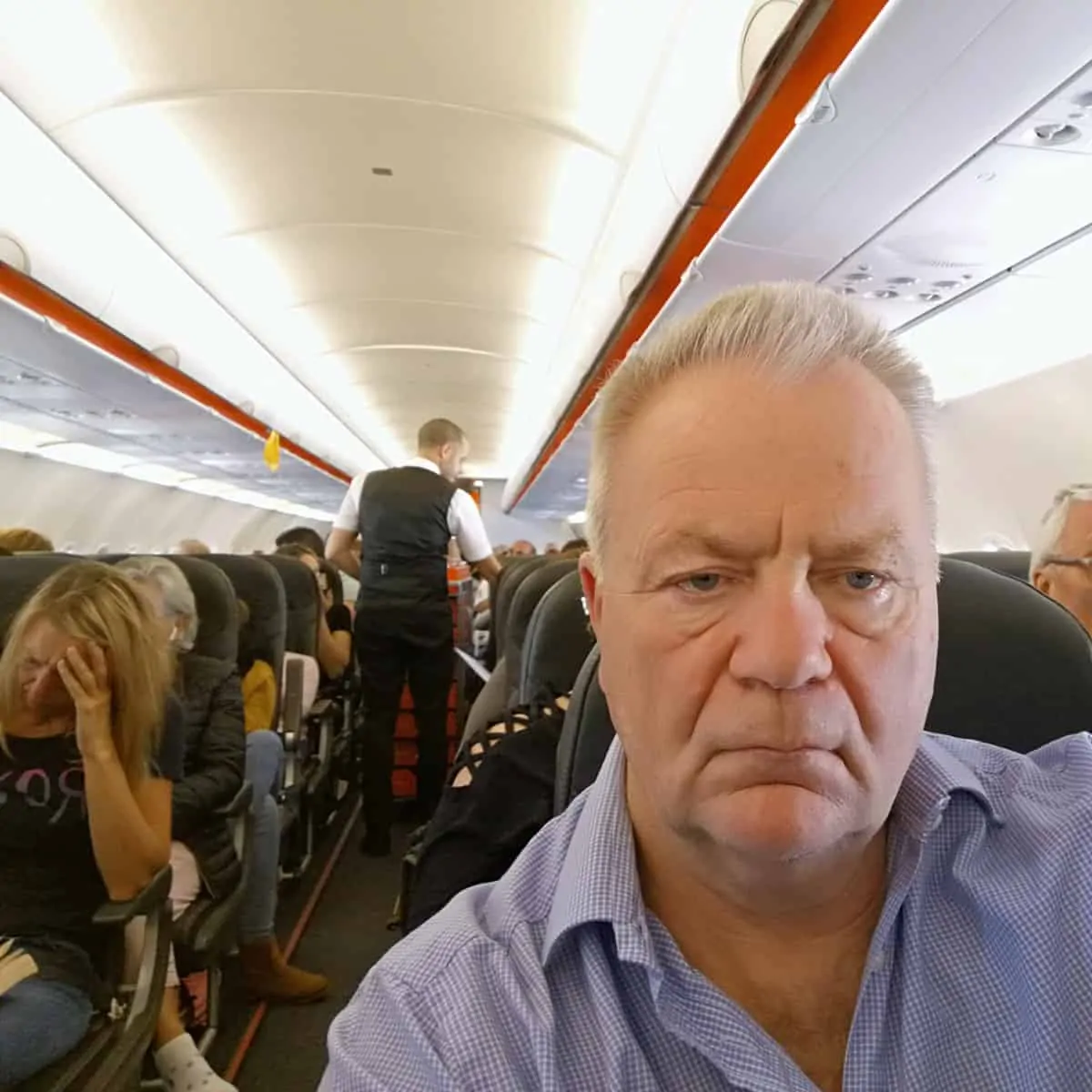Traveling with needles might seem like a daunting task, especially given the strict security measures at airports. However, rest assured that it is indeed possible to take needles on a plane.
Whether you require them for personal medical or professional purposes, knowing the Transportation Security Administration (TSA) guidelines and airline-specific policies will help ensure a smooth journey.
Many passengers, for instance, those with diabetes, often travel with syringes and medication as part of their routine. The TSA regulations allow the transportation of unused syringes and injectable medication in carry-on bags and checked luggage.

Key Takeaways
- Traveling with needles on a plane is possible, provided that you follow the TSA guidelines and airline policies.
- Always declare your needles and medications to security officers at the checkpoint for inspection.
- Staying informed and prepared will ensure a smooth journey for passengers traveling with medical supplies.
Contents
Needles on a Plane
Traveling with needles can be a concern for many people who plan to fly. Knowing the necessary guidelines and restrictions when packing your needles in luggage for air travel is important.
You will have no problems taking needles and other related items on a plane if packed in your checked bags, but you need to take special action if packing them in your carry-on bags.
Hypodermic Needles
If you need to bring hypodermic needles on a plane for personal use, such as insulin injections, it is important to follow the proper guidelines to ensure a smooth airport security experience.
You should carry a sharps disposal container to store and dispose of used needles safely. Additionally, carry a letter from your healthcare provider explaining your need for hypodermic needles during your trip.
Injection Needles
For other types of injection needles, such as those used for testosterone replacement therapy (TRT), the same rules apply as with hypodermic needles. Keep the prefilled syringes in a clear, resealable plastic bag.
Ensure you have a letter from your healthcare provider detailing the necessity of carrying these needles and any associated medications for your trip.
Should you pack needles in carry on or checked bags?
As with any medication or medical supplies that you may need during the flight or while waiting to board, needles, syringes, and diabetic supplies should always be kept in your carry-on. If they are in your checked bags, you will not have access to them during the flight.
Also, if you pack them in checked bags and the bags are lost or delayed, you may have to try to source replacements at your destination, which may be difficult, particularly in a foreign country.
Medications and Medical Supplies
Injectable Medication
When flying, it is important to consider the needs of your medical condition. You can take needles and injectable medicines on a plane for medical purposes.
The Transportation Security Administration (TSA) allows unused syringes through the airport security checkpoint in your carry-on luggage if they are accompanied by injectable medication.
Be sure to declare these items to security officers at the checkpoint for inspection. You may need to pack extra medical syringes and a healthcare provider’s letter confirming your medical needs.
Prescription Medications
For prescription medications, it is essential to carry them in their original containers with a prescription label and, if possible, a copy of the prescription. This helps ensure proper documentation.
Talk to your healthcare provider for any necessary documentation, such as a doctor’s letter or medical certificate, to support your medical reason for carrying medication onboard.
Read: What States Require Medication to Be in Prescription Bottles when Flying?
Liquid Medicines
The Transportation Security Administration allows larger amounts of medically necessary liquids, gels, and aerosols for your trip. You must declare them to security officers at the checkpoint for inspection.
For medical liquids, be sure to pack them in a separate, clear plastic bag, and inform the officer at the beginning of the screening process.
Medical Devices
If you require medical devices like insulin pumps or continuous positive airway pressure (CPAP) machines, ensure you have proper documentation to support your medical needs. United Airlines advises calling their Accessibility Desk at least 48 hours before your flight.
They may verify that your equipment meets safety standards. Make sure to pack your medical equipment carefully, and if possible, bring a doctor’s note or letter confirming why you need these items on the flight.
Diabetic Travelers

Insulin Pump
For diabetic travelers who use an insulin pump, knowing that you can wear your pump through the security checkpoint is important. However, if you prefer not to wear it, ensure you inform a TSA officer beforehand and request a hand inspection.
Remember that insulin pumps should not be exposed to X-ray machines, as this may damage the device.
Diabetes-Related Supplies
As a diabetic traveler, you can bring your diabetes-related supplies on the plane.
The Transportation Security Administration (TSA) permits diabetes supplies, equipment, and medications, including liquids, to pass through the checkpoint once they have been properly screened by X-ray or hand inspection.
Remember to carry extra syringes and insulin as precautionary measures during your travel.
Sharps Disposal Container
When traveling with insulin needles, it is crucial to have a sharps disposal container for used needles and syringes. The sharps container should be hard-sided and puncture-resistant. Although the TSA does not specifically require these containers, it is a responsible practice for your safety and the safety of others.
Check with your airline for any specific policies they may have regarding sharps containers onboard.
Following these guidelines, you can confidently and safely navigate airport security and travel with your diabetic supplies, ensuring a smoother journey.
Frequently Asked Questions
Can I bring unused syringes on a plane?
You can bring unused syringes on a plane when accompanied by injectable medication. You must declare these items to security officers at the checkpoint for inspection.
What should I do if I need to bring syringes and injectable medication on a plane?
You should pack your syringes and injectable medication in your carry-on baggage. You should also bring a letter from your doctor explaining your medical condition and the need for the medication and syringes.
Will TSA check my medical bag?
The TSA does not specifically check medical bags they may be subject to additional screening. This is because medical bags often contain items that could be used as weapons, such as syringes.
Are there any restrictions on the amount of syringes and medication I can bring on a plane?
There are no restrictions on how much syringes and medication you can bring on a plane, but you must declare these items to security officers at the checkpoint for inspection.
Can you travel with needles and syringes in checked baggage?
You can travel with needles and syringes in your checked baggage. Sharp objects should be sheathed or securely wrapped to prevent injury to baggage handlers and inspectors. It’s also a good idea to keep your medical supplies, such as needles and syringes, in a separate, clearly labeled bag to make the screening process smoother.
Is it allowed to bring IV needles on an airplane?
While specific policies may vary among airlines, you can generally bring IV needles on an airplane. When packing IV needles in your carry-on or checked luggage, you must have a valid prescription and documentation for your medical needs. You should also inform the TSA agent about your medical situation during the security screening process. To ensure a smooth experience, check with your airline regarding their specific policies on carrying IV needles onboard.
What’s the TSA policy for injectable medications?
The TSA allows passengers to carry injectable medications in carry-on and checked bags. It’s crucial to pack your medication in a separate, clearly labeled bag and inform the security officers about it during the screening process. You should also carry a valid prescription and any necessary documentation that justifies your medical need for the injectable medications.

I have been traveling around the world by air since the early 70s and living overseas too. I worked for British Airways for a number of years and I am also a private pilot. About Me


